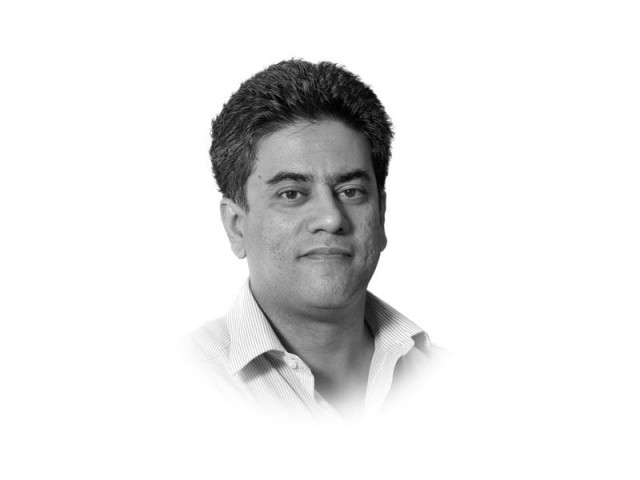Journalism and activism
Journalists have to keep their activism to one side when reporting

The writer, a former editor of The Express Tribune, is director of the Centre for Excellence in Journalism at IBA, Karachi. He tweets @tribunian
It is these and many similar questions that journalists should ponder on as they prepare to cover the general elections in July — an exhaustive exercise by any standard. In many cases, these will be the first elections that these reporters and copy editors would be covering.
To begin with, like all human beings, we have to understand that journalists too are biased. Our bias comes from our circumstances which includes our upbringing, education and environment as well as from our understanding of different issues.
The first lesson we are taught as journalists is that to counter bias, a story should be covered from all angles. This means talking to all people and quarters concerned. Unless that is not done, the story cannot be complete. Some reporters simply write in their copy “this correspondent tried to contact xyz but he was not available for comment.” This is lazy journalism and should not have a place in our media.
News is also funnelled in such a way that the reporter files a story and it goes through a copy editor and other hands before ending up on the pages or on the screen. Sometimes, one can argue, it is not the reporter that has become less professional but the system of checks and balances that was in place is now not that effectively being employed, possibly as a result of time.
Then comes the question: should journalists be activists? Like our politics, journalists have to keep their activism to one side when reporting. To have a passion for causes or to have political leanings and beliefs is actually good for a journalist. But it should not come through in your work.
For example, if you are attending a political rally in your capacity, then you cannot report on it. And vice versa — if you are reporting on it, then do not take sides. Report what you see.
It is ironic but sometimes the simplest things are the hardest to report. Given the different filters that are forced on us, what we see and what we end up reporting can be quite a contrast. Many journalists feel strongly about this. There is a level of self-censorship that we see in the mainstream media. Possibly this has led to audience moving towards social media, which in comparison remains somewhat unfettered despite being chaotic and tricky to navigate.
In this age of Donald Trump and fake news, it has become a challenge for journalists to report truthfully and be heard. The July general elections will be the biggest challenge the Pakistani media has faced so far. For this, they have to be prepared.
To begin with, they have to sift fact from fiction. There is a lot of disinformation being put out there by different parties. Journalists would have to use their common sense and not simply swim with the tide when it comes to sound-bites and breaking news.
Some parties have started to make overtures to the media. In some instances, politicians are setting up their media circles and giving only their favourites access. This is a time and tested method to get reporters to report favourably on these candidates. Journalists should always demand access but not promise any favours in return. If they develop such a reputation, political parties will vie for their attention.
In all this, possibly the biggest challenge remains training of journalists. What, for example, is a constituency and what is delimitation. How and when a candidate is declared successful? What does the Constitution say on elections and how does the Election Commission apply it? It is sad to note that most journalists lack basic knowledge of the electoral process. That is possibly why different actors are trying to mislead the media.
As we prepare for the elections, let us hope that the media rises to the challenge. Let us hope that the first casualty of the electoral process isn’t truth. We owe it to our audience and readers.
Published in The Express Tribune, June 20th, 2018.
Like Opinion & Editorial on Facebook, follow @ETOpEd on Twitter to receive all updates on all our daily pieces.















COMMENTS
Comments are moderated and generally will be posted if they are on-topic and not abusive.
For more information, please see our Comments FAQ